Collection
Theme
- Armed Conflict
- Trafficking
- Forced labour
- Forced marriage
- Domestic slavery
- Sexual exploitation
- Debt bondage
Country
- Sudan (trafficked from)
- Sudan (slavery location)
- Democratic Republic of Congo (slavery location)
- Democratic Republic of Congo (trafficked from)
- Iraq (trafficked from) 20 More
Date
- 2015 (Narrative date)
- 2014 (Narrative date)
- 2017 (Narrative date)
- 2013 (Narrative date)
- 1999 (Narrative date) 20 More
Type
106 results
VOICES: Narratives by Survivors of Modern Slavery
This is the world's largest archive of modern slavery survivor narratives. Across more than a million words spoken or written by survivors of modern slavery, we can see why slavery persists in particular hotspots, analyse patterns in trafficking routes, identify vulnerabilities, understand more about the challenges survivors face in liberation, and discover new antislavery solutions. These narratives offer the chance to systematically design new antislavery strategies based on the experiences, ideas and solutions of enslaved people themselves.
The database is searchable by country, name, theme, and narrative date. Narratives can be viewed in list or map form. A short introduction provides context to each narrative. Narrative provenance appears after the main narrative text.
For ideas on how to use this database, please see our accompanying guide.
Project Lead: Zoe Trodd. Team Members: Andrea Nicholson, Lauren Eglen, Rosemary Pearce, Olivia Wright.
Project Funders: AHRC Antislavery Usable Past grant (2014-19), ESRC/AHRC PaCCS Modern Slavery: Meaning and Measurement grant (2016-19), and AHRC-GCRF Antislavery Knowledge Network grant (2017-2021).
For any queries about the collection please contact: [email protected]. If you wish to cite a particular narrative, please acknowledge the survivor’s name, the provenance of the narrative and cite: Voices Database, the Rights Lab, University of Nottingham.
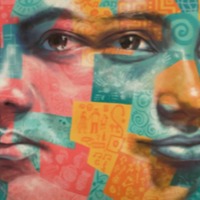
Fabienne
According to the 2018 Global Slavery Index, there are approximately 408,000 people enslaved in Burundi. Amnesty International describes how military leaders have fuelled Burundi’s 10-year armed conflict by recruiting and abducting children. Poverty and years of armed conflict have made it easier…
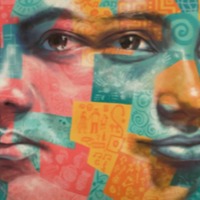
Fawziya
ISIS has singled out the Yazidi minority, notably its women and children, for particularly brutal treatment. In August 2014, ISIS fighters abducted hundreds, possibly thousands, of Yezidi men, women and children who were fleeing the IS takeover from the Sinjar region, in the north-west of the…
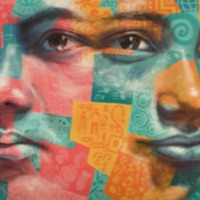
Francis Bok
There are an estimated 465,000 people living in modern slavery in Sudan (GSI 2018). Between 1983 and 2005, the central government of Sudan enslaved tens of thousands of black South Sudanese Christian and traditionalist people. It was part of a genocidal war against South Sudan, with a simple aim:…
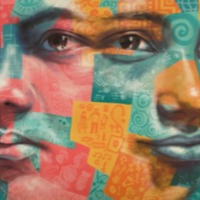
Gau
Thousands of women and children were taken into slavery during the decades of Sudan’s civil war, mainly from Northern Bahr El Ghazal and the Nuba Mountains. Slave-taking was revived in 1985 by the National Islamic government of Sudan primarily as a weapon against counterinsurgents in the South,…
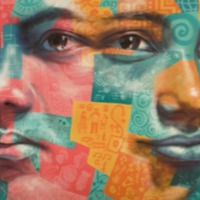
Giselle
In the Philippines, where three major insurgent groups have fought the Philippine military since the 1960s, there are an estimated 2000 child soldiers. The Communist-oriented New People’s Army, established in 1968, began an intense recruitment of children in the 1990s. By 2000, some 25 percent of…
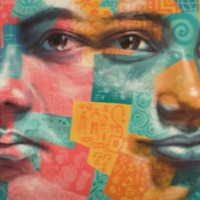
Gloria
There are an estimated 1,386,000 people living in modern slavery in Nigeria (GSI 2018). Since 2009, Nigeria’s homegrown Islamist insurgent movement, Jama’atu Ahlis Sunna Lidda’awati wal-Jihad, popularly known as Boko Haram, which means “Western Education is Forbidden,” has waged a violent…
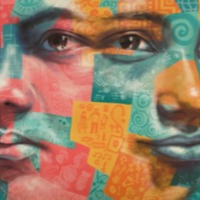
Grace Akello
There are an estimated 465,000 people living in modern slavery in Sudan (GSI 2018). Between 1983 and 2005, the central government of Sudan enslaved tens of thousands of black South Sudanese Christian and traditionalist people. It was part of a genocidal war against South Sudan, with a simple aim:…
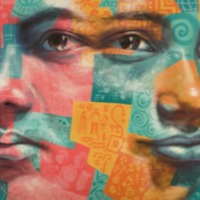
Habtu
There are an estimated 451,000 people living in modern slavery in Eritrea (GSI 2018). The small country has a unique system of compulsory, open-ended military service for citizens that makes it one of the most oppressive states in the world. The government has enforced its current policy of sending…
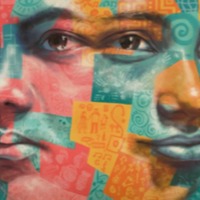
Hadiza
There are an estimated 1,386,000 people living in modern slavery in Nigeria (GSI 2018). Since 2009, Nigeria’s homegrown Islamist insurgent movement, Jama’atu Ahlis Sunna Lidda’awati wal-Jihad, popularly known as Boko Haram, which means “Western Education is Forbidden,” has waged a violent…
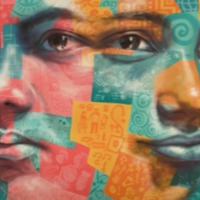
Haile
There are an estimated 451,000 people living in modern slavery in Eritrea (GSI 2018). The small country has a unique system of compulsory, open-ended military service for citizens that makes it one of the most oppressive states in the world. The government has enforced its current policy of sending…
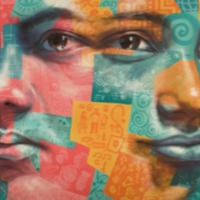
Hanan
Since the war broke out in Syria, child marriage rates have risen sharply. Before the war, child marriage did happen, but conflict has exacerbated many of the factors that push families into marrying their daughters off, such as insecurity, poverty and lack of education. In just three years from…
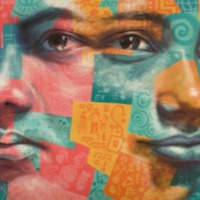
Hauwa
There are an estimated 1,386,000 people living in modern slavery in Nigeria (GSI 2018). Since 2009, Nigeria’s homegrown Islamist insurgent movement, Jama’atu Ahlis Sunna Lidda’awati wal-Jihad, popularly known as Boko Haram, which means “Western Education is Forbidden,” has waged a violent…
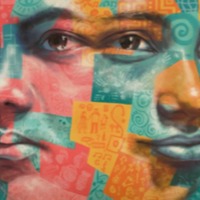
Heyab
There are an estimated 451,000 people living in modern slavery in Eritrea (GSI 2018). The small country has a unique system of compulsory, open-ended military service for citizens that makes it one of the most oppressive states in the world. The government has enforced its current policy of sending…
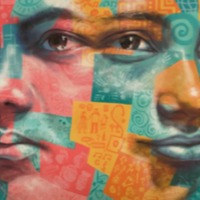
Hiwot
There are an estimated 451,000 people living in modern slavery in Eritrea (GSI 2018). The small country has a unique system of compulsory, open-ended military service for citizens that makes it one of the most oppressive states in the world. The government has enforced its current policy of sending…
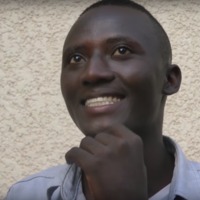
Jean-de-Dieu
According to the 2018 Global Slavery Index, there are approximately 408,000 people enslaved in Burundi. Amnesty International describes how military leaders have fuelled Burundi’s 10 year armed conflict by recruiting and abducting children. Poverty and years of armed conflict have made it easier…
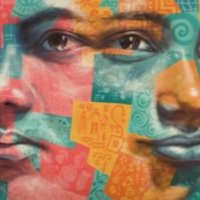
Jeanne
The Central African Republic is a source, transit and destination country for men, women and children trafficked for the purposes of forced labour and sexual exploitation. The majority of those trafficked are children subjected to sexual exploitation, domestic servitude, ambulant vending and…
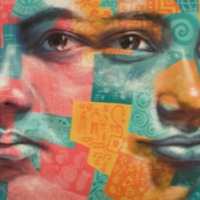
Joelle
There are an estimated 1,045,000 people living in conditions of modern slavery in the Democratic Republic of Congo (GSI 2018). In 2016 several armed groups continued to abduct and forcibly recruit men, women and children as combatants and in support roles such as guards, cleaners, cooks and spies.…
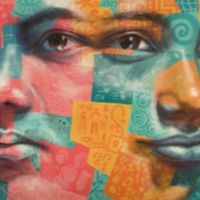
John B
There are an estimated 1,045,000 people living in conditions of modern slavery in the Democratic Republic of Congo (GSI 2018). In 2016 several armed groups continued to abduct and forcibly recruit men, women and children as combatants and in support roles such as guards, cleaners, cooks and spies.…
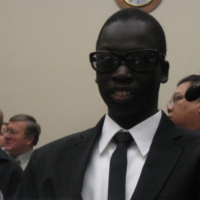
Ker Deng
Ker Deng, one of the Dinka people of Southern Sudan, was captured into slavery as a child during Sudan's civil war. His father had died and he was captured alongside his mother, Angel Mangok Diin, and taken to the North by raiders. He was blinded by his slave-holder, Zakaria Salih, as punishment for…
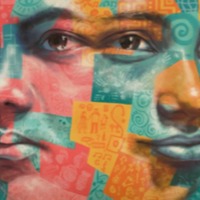
Kidane
There are an estimated 451,000 people living in modern slavery in Eritrea (GSI 2018). The small country has a unique system of compulsory, open-ended military service for citizens that makes it one of the most oppressive states in the world. The government has enforced its current policy of sending…